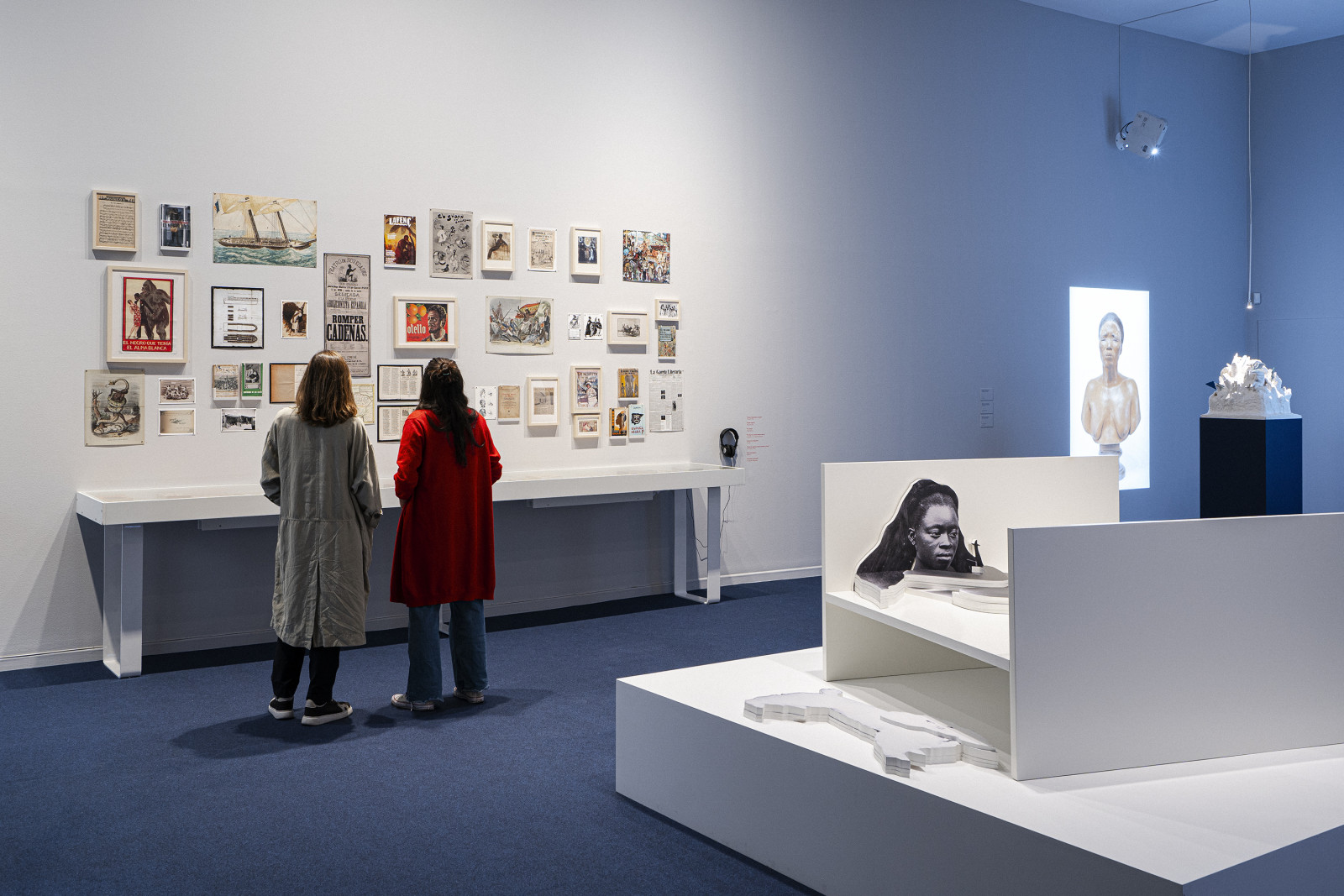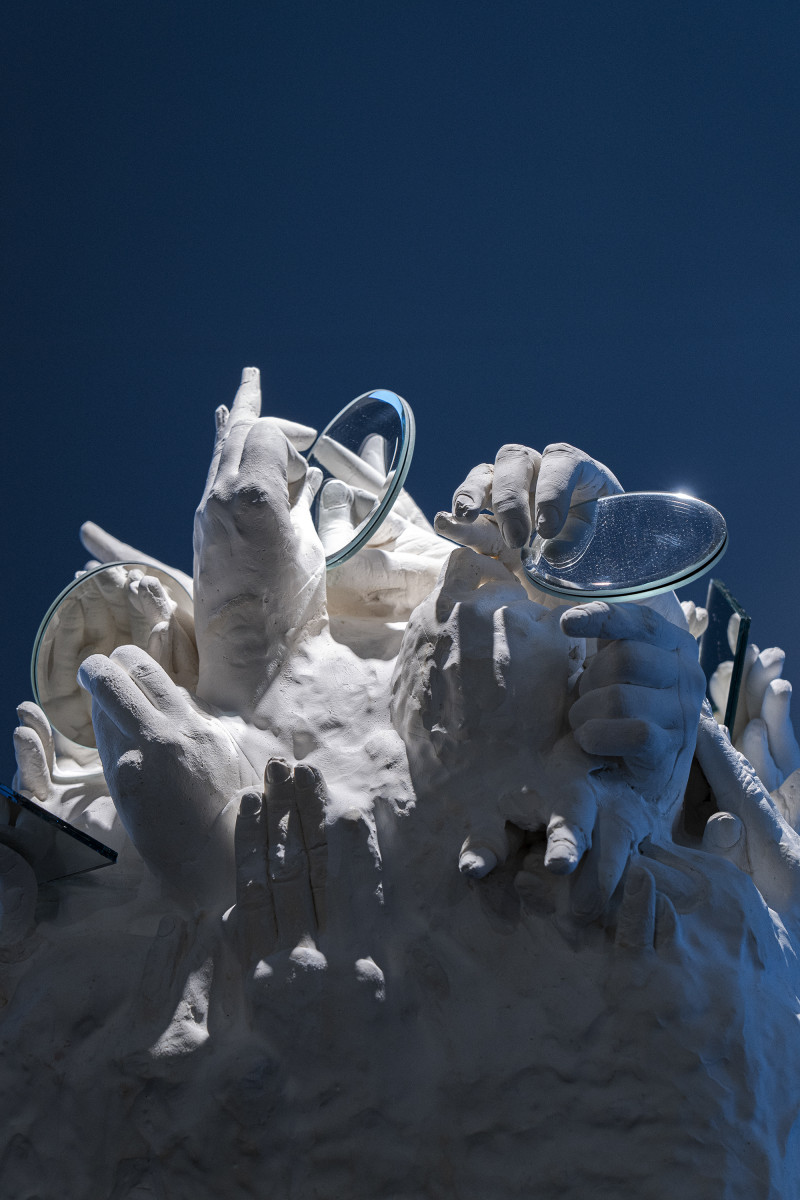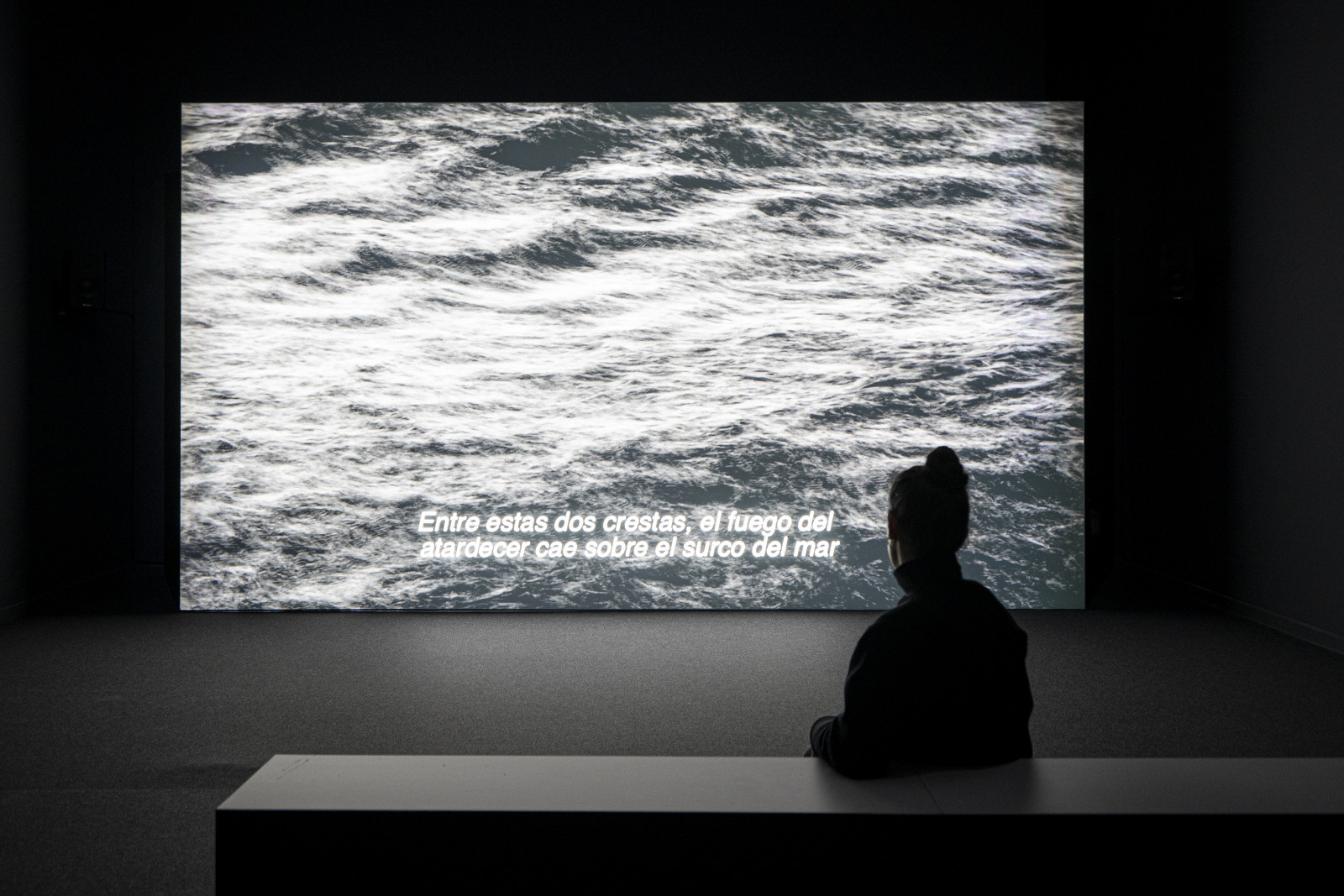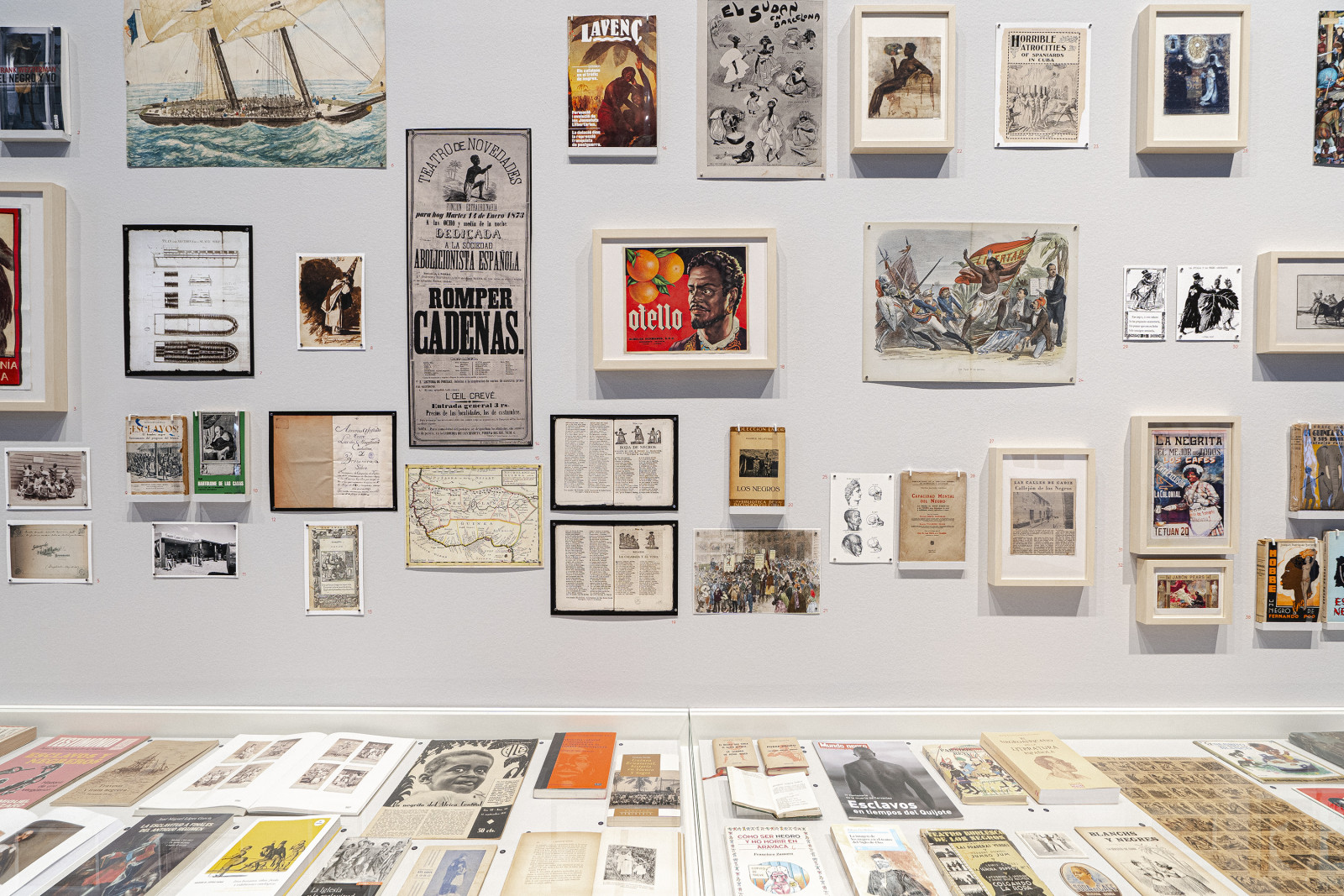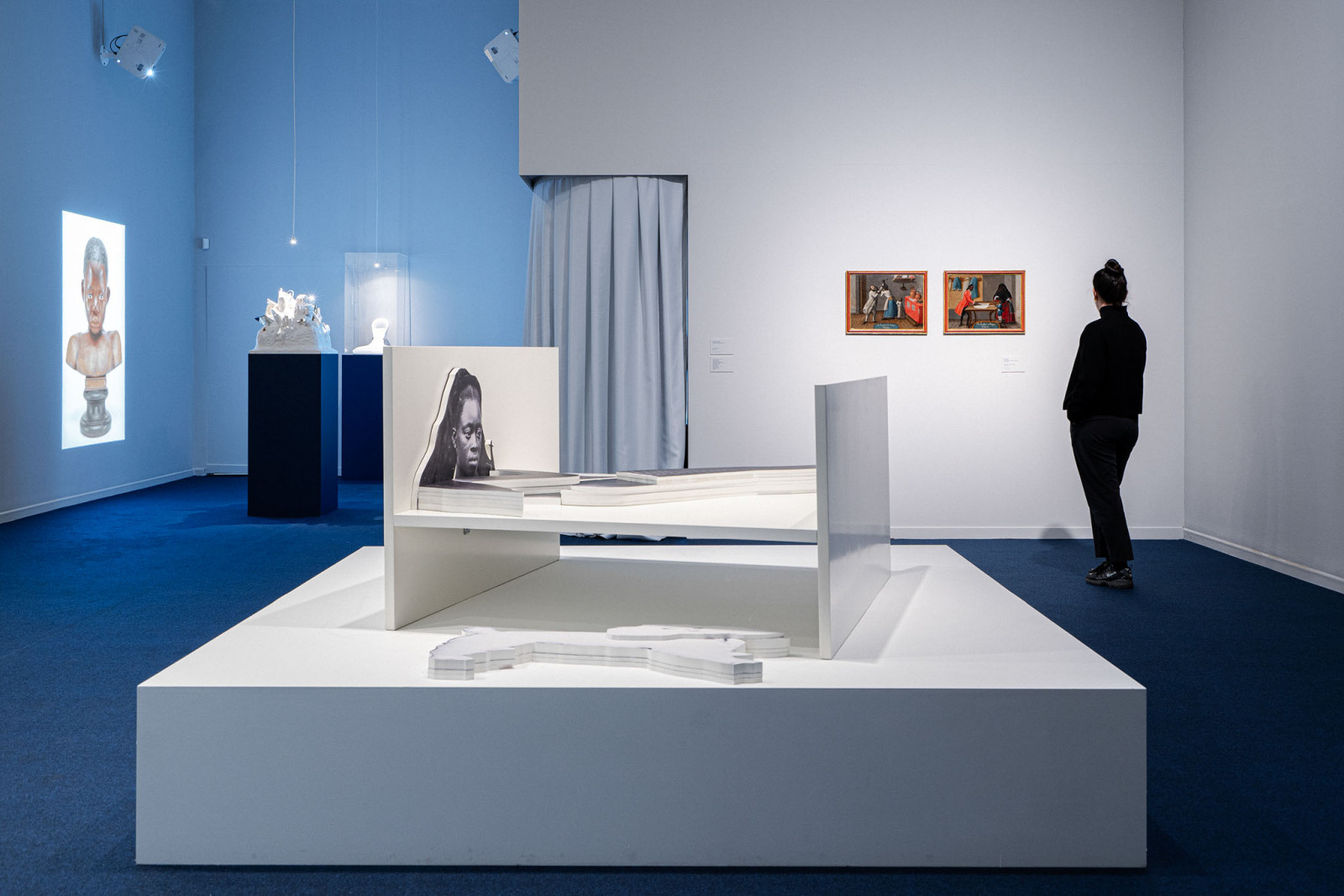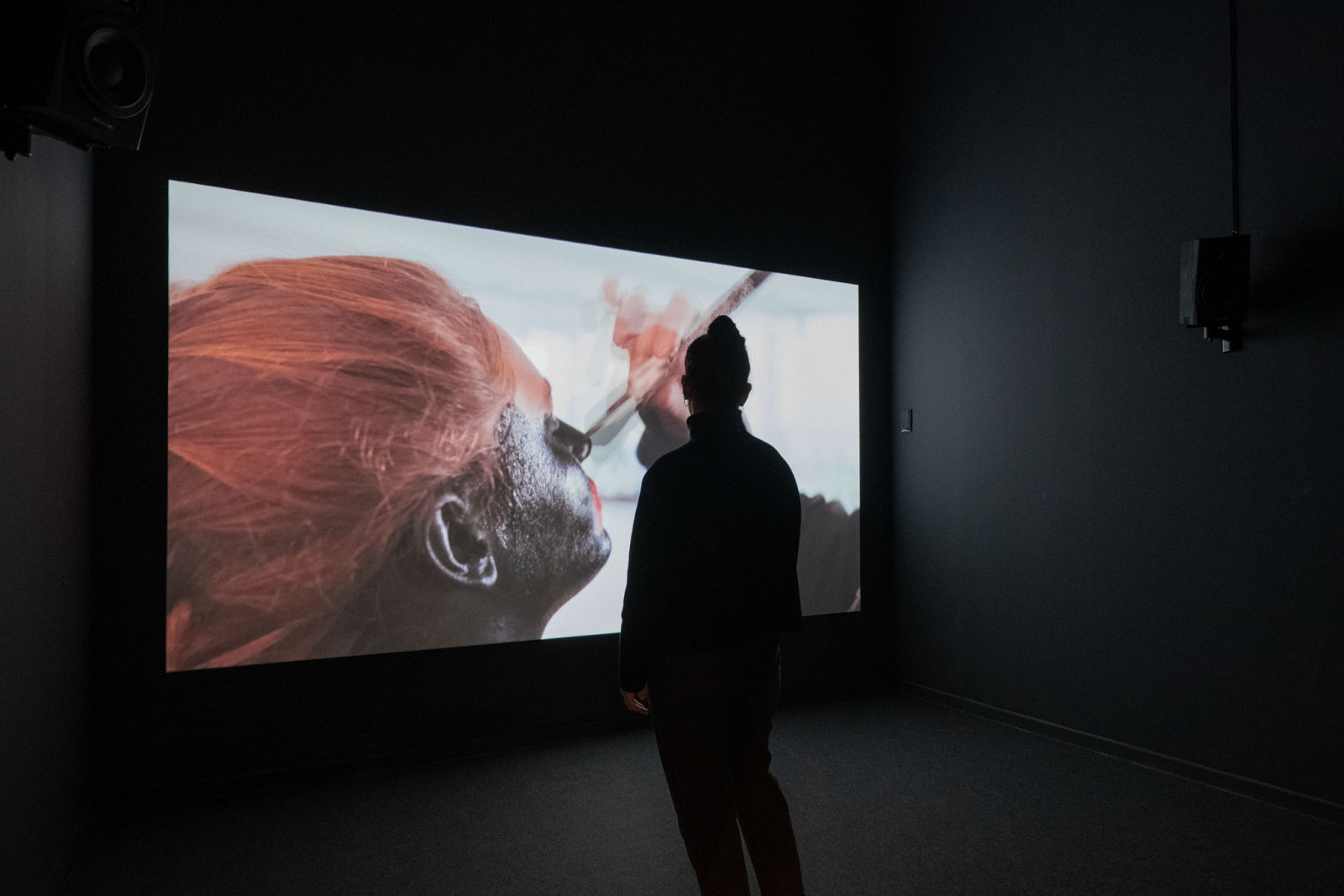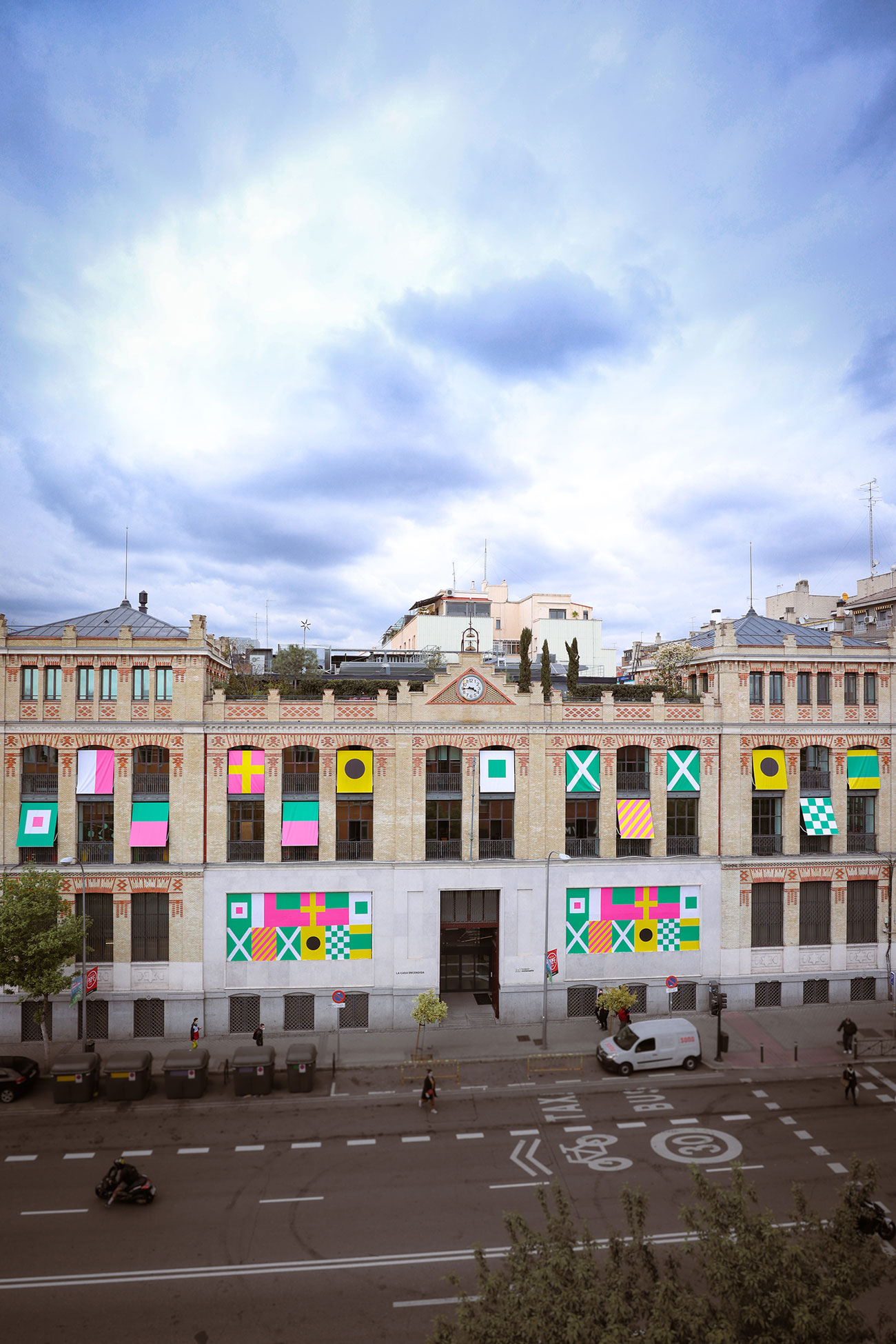A requiem for humanity
| Target audience: | General public |
| Location: | Sala B, Sala C |
Dehumanisations, power and black futurisms.
In the black intellectual tradition, the fundamental issue is not class or race, but contesting the Western symbolic order and the Christian vision of 'the human': a symbolic order in which black subjects are objectified, inferiorised and animalised, and thus expelled from the “humanity” that the Western bourgeois embodies. This is the starting point for A requiem for humanity, dehumanisations, power and black futurisms, an exhibition curated by Tania Adam, which approaches the scientific, cultural and religious production that led to the de-humanisation of “the negro” and the resulting violence on black people. It will also examine and deal with the utopias that allow us to imagine a future of emancipation.
As Aimé Césaire pointed out as early as 1955 in his book, Discourse on Colonialism, and as did the anti-colonial movements, the European humanist narrative required the systematic degradation of non-white men and women to construct its myths.
In the same vein, Jamaican philosopher Sylvia Winter has stated that “man must be liberated. That liberation can only come from below, from those who have suffered oppression”. Similarly, Frantz Fanon and other black intellectuals, aware that the problem of humanity is not found in identity per se, but in its statements and meanings, suggested not contributing to or participating in the system of knowledge that leaves them outside humanity because of their black condition.
Since the black man is conceived as a defect of the white man, an animal, a non-being, only intellectual disobedience that proposes a new conception of humanity will allow the black – and the indigenous, the “other” – to be human.
The exhibition is organised along these lines of reasoning. There is an initial section, entitled “Dehumanisation”, with works by Claudia Claremi, Frida Orupabo, Sybil Coovi Handemagnon, D. W. Griffith and Archivos Negros, which shows how this construct of the anti-black world leads to a timeless and incessant spiral of violence that persists in present-day societies. Part two – “Rehumanization”, with pieces by the Kongo Astronauts, The Otholith Group, Alice Coltrane, Sun Ra, Drexciya, W.E.B. Du Bois, Ishmael Reed, Octavia E. Butler, Fred Moten, Sony Labuo Tansi, Kodwo Eshun, Louis Chude-Sokei, Amos Tutuola, Nihiloxica, Drecxiya and Lee 'Scratch' Perry– proposes a utopian approach to reflecting and imagining a humanity that goes beyond the human, flirting with a mythology that breaks down the distinctions between the human, the alien and the machine. It is a form of Rehumanisation, of repairing and rehistoricising in order to take back the power of the narrative. We may also say it allows us to celebrate a Requiem for misrepresented humanity.
Between the two rooms, a wall displays “Writing and Power", a selection of forty-five book titles – essays, poetry and prose – by black authors from Africa and the entire diaspora, who from the end of the 18th century to the beginning of the 21st century have used the written word as a form of power and re-humanisation. The journey begins in 1789 with Olaudah Equiano’s The Interesting Narrative of the Life of Olaudah Equiano; or, Gustavus Vassa, the African, Written by Himself, and goes on to include writings by Sojourner Truth, Frederick Douglass, Marcus Garvey, Zora Neale Hurston, Anton de Kom, CLR James, Richard Wright, Paulette Nardal, Tony Morrison, Cheikh Anta Diop, Abdías do Nascimento, Angela Davis, Paul Gilroy, Mario Pinto Andrade, Achile Mbembe, and Saidiya Hartman.
The exhibition’s curator, Tania Safura Adam (Maputo, Mozambique, 1979) is a researcher, as well as founder and editor of Radio África, a platform for critical thinking and dissemination of black arts and cultures. Her research explores black diasporas, displacements and forms of resistance and African popular music. She curated Microhistorias de la Diáspora. Experiencias encarnadas de la dispersión femenina [Microhistories of the Diaspora. “Embodied” Experiences of Female Dispersion] (La Virreina, 2018-2019) and the Blue Black Futures research project (MACBA, 2021-2022). She was responsible for the programme of activities Making África: Un continente de diseño contemporáneo [Making Africa: a Continent of Contemporary Design] (CCCB, 2016). Her poems have been published in the anthology Africa(na)s: Historias para el siglo XXI [Africans: Stories for the 21st Century] and in Concreta 22. Maternidad: Un sufrimiento exquisito [Concrete 22. Motherhood: an Exquisite Form of Suffering]. She is currently directing the research project España Negra. Viaje hacia la negritud en el espacio-tiempo [Black Spain. A Journey to Negritude through Space and Time] (Museo Reina Sofía, MACBA, Artium, CCCB, IVAM) and the seminar on Black Iberian Studies at the Museo Reina Sofía’s Programa de Estudios Propios [Internal Studies Programme]. She hosts the programme Radio Africa on betevé and has just published Voces negras: Historia oral de las músicas populares africanas [Black Voices: an Oral History of African Popular Music] (Malpaso, 2024).
